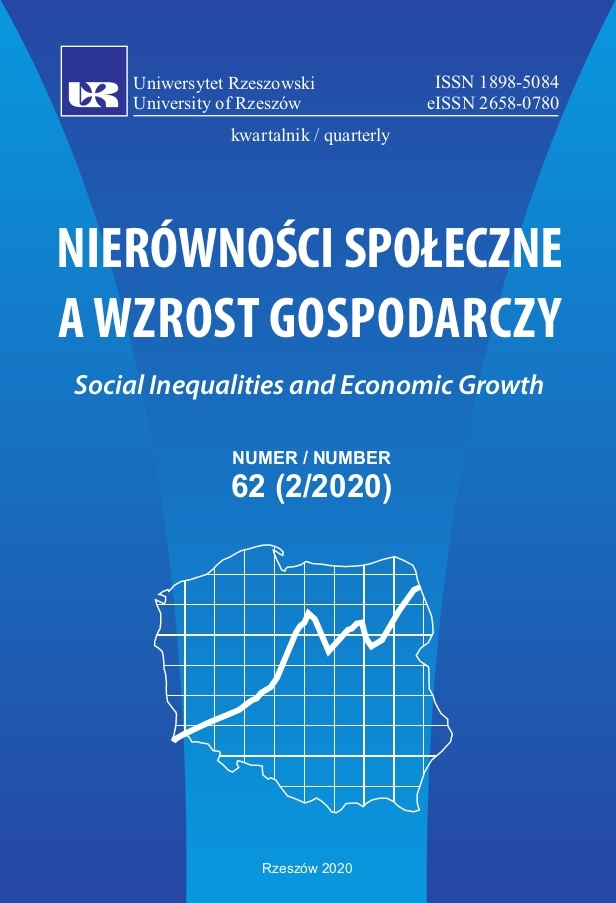Education versus standard of living in the considerations of classical and modern neoliberal approaches
DOI:
https://doi.org/10.15584/nsawg.2020.2.16Keywords:
classical economics, liberalism, living standards, education, labourAbstract
The paper presents the attitudes of the English classics, i.e. Adam Smith and John Stuart Mill, as well as the neoliberal Milton Friedman, to education as a tool supporting the process of division of labour, and thus having a positive impact on the nation’s wealth (national income) and standard of living, not only of individuals but of whole society as well. The aim of the study is to discuss the representatives of the classic economic thought and Milton Friedman’s idea of education as a tool for improving living conditions. The method of describing and reviewing the literature of the subject was used in the paper. In the reality of the free market economy, knowledge and skills as well as the activity, creativity and entrepreneurship of an individual determine individual success, and thus translate into a standard of living. However, with the spread of the capitalist system of production and the deepening of the process of division of labour (specialisation), a universal and public education system, financed by public and private funds hand in hand, plays an increasingly important role in improving the standard of living of the individual and of the general public. Today, the efficiency of the education system (easier access to an appropriate level of education) determines the wealth of society and the position of the state in the global economy.Downloads
Download data is not yet available.
Downloads
Published
2020-11-04
How to Cite
Danowska-Prokop, B. (2020). Education versus standard of living in the considerations of classical and modern neoliberal approaches. Social Inequalities and Economic Growth, 2(62), 245–255. https://doi.org/10.15584/nsawg.2020.2.16
Issue
Section
Articles
License
Copyright (c) 2020 University of Rzeszow

This work is licensed under a Creative Commons Attribution-ShareAlike 4.0 International License.


